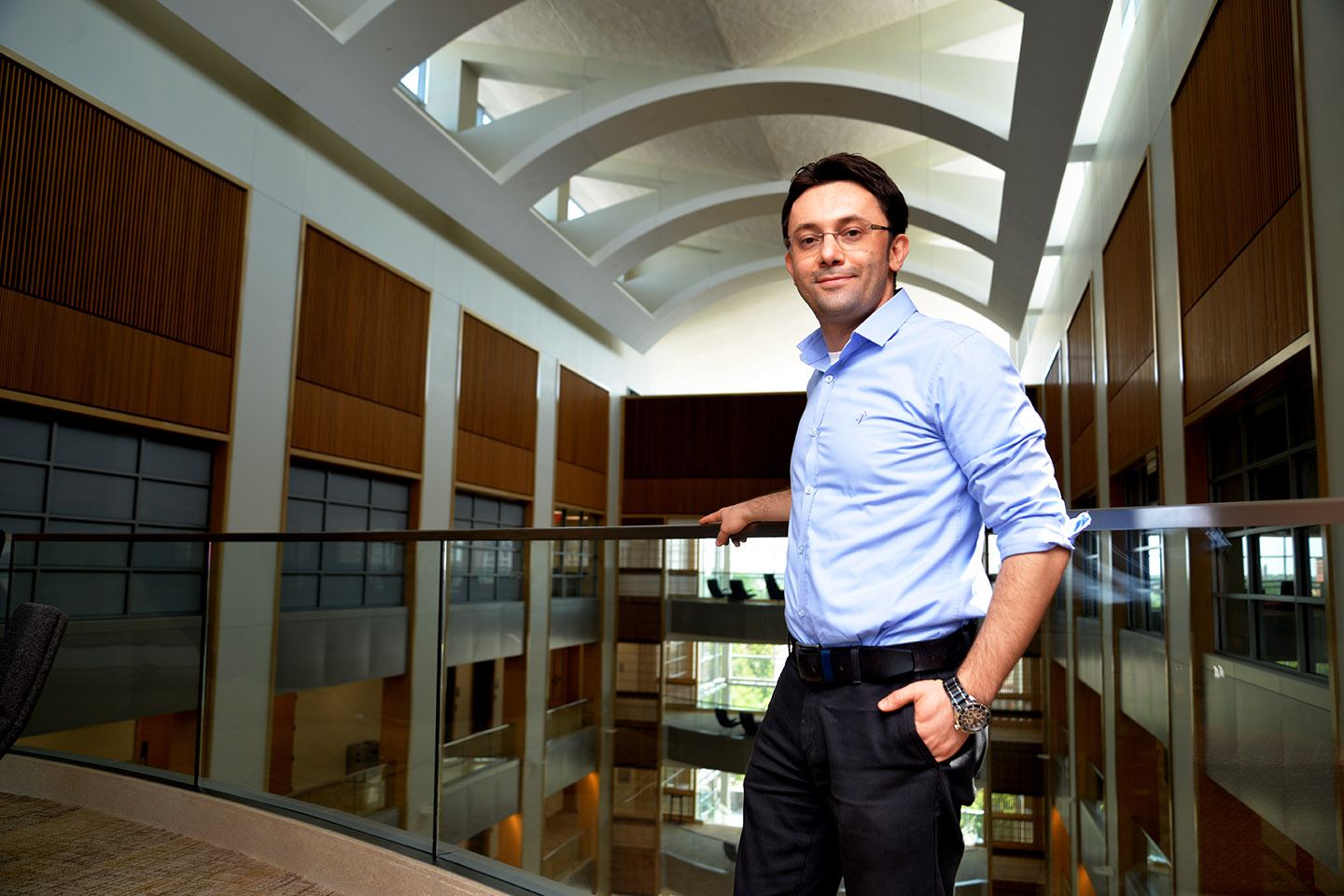
“While getting my undergraduate degree in industrial engineering in Turkey I interned for a big pharmaceutical company,” said Sönmez, assistant professor in supply chain management and analytics at the University of Nebraska–Lincoln College of Business. “There, I was an engineer in a marketing department where we worked with sales representatives to design work regions. I was able to use math models to resolve work regions and benefit the company. That was the moment I decided I liked to design practical applications to help make better decisions.”
Motivated by using math to solve business problems, Sönmez came to the U.S. to study at the Carnegie Mellon University Tepper School of Business, where he earned a master’s and Ph.D. in operations management. He developed techniques applicable to a wide range of businesses from energy companies to banking. He also discovered a cross-discipline approach between supply chain management and agriculture which started in his youth.
“Every summer my dad sent me to my grandfather's farm. I would be doing hard work in the rice fields. I learned how to use a tractor and other farm machinery, including how to seed crops, how to grow and harvest them over the entire three-month summer break,” he said.
His farming background combined with his ability to apply statistical models to solve problems led Sönmez to volunteer with the Boston Area Gleaners while working as a professor in Boston. Gleaning is the process of harvesting surplus farm crops to prevent waste and feed undernourished families.
“The Boston Gleaners help get food to families that would otherwise go unharvested. For instance, if there are too many tomatoes it would be too costly for farmers to harvest the ones that wouldn’t sell. So instead the Gleaners come in and collect the unused tomatoes with volunteers like me working for a few hours at a time,” said Sönmez.
He explained about 14 percent of the U.S. population is food insecure – meaning even many working families do not bring home enough income to feed all family members. If families want to eat a healthier diet, Sönmez said it is even more difficult to feed low-income families.
“I began developing staffing models on how to optimally organize volunteers to recover as much food as possible. With new rules in place we began recovering 10 percent more food, which amounts to thousands of pounds of food. This is the type of story I can tell students in Nebraska to inspire them about food waste and sustainability issues. Many of my past students are now volunteering at soup kitchens and food banks. They also see how math that might look boring at first can be very useful and helpful to those in need,” he said.
His research in gleaning techniques continue to make an impact through journals in both the industrial engineering and agricultural world appearing in such publications as American Journal of Agricultural Economics, Industrial and System Engineering Magazine, Food Policy and forthcoming in Operations Research. A gleaning article also appeared in HuffPost.
Dr. Jennifer Ryan, department chair and Ron and Carol Cope Professor of Supply Chain Management and Analytics, believes Sönmez impact at Nebraska can make a difference both in the classroom and in research.
“Erkut has been vital bringing agricultural models into supply chain management. We don’t have a lot of people who do that in Nebraska but it’s an important part of supply chain. How can we use those models to improve the sustainability of our resources? That’s a new and important area for our department,” said Ryan.
Ryan pointed out that Nebraska will be hosting the Sustainable Operations Management conference in a couple years thanks to Sönmez’s leadership. The conference brings together around 50 scholars from across the country working in sustainable operations. She noted his work in the classroom helps students look to the future to solve practical problems in the community.
“Erkut is our star teacher. Everyone at the College of Business has to take the core operations management course he teaches. It’s often a course students don’t like but he manages to get them to like the material and brings in many real-world examples. His teaching has inspired not only our students but also the faculty,” she said.
Sönmez believes Nebraska helps develop the passion for his work as well. The plains of the Cornhusker state harken back to his childhood.
“I was very eager to come to Nebraska to learn more about agriculture. Nebraska is one of the leading institutions in my area of interest. I’ve learned so much in the two years I’ve been here about agronomy. To do my research, I need to know things about crop production like the water holding capacity of the soil. It takes a lot of expertise,” he said.
He continues to gain expertise by learning from the state’s farmers and the university’s faculty and students. For Sönmez, learning goes both ways in his classroom.
“I learn from many of my students who come from a farming background,” he said. “When I get stuck on some question like irrigation, I just ask my students and they give me the answer to what I need to know.”